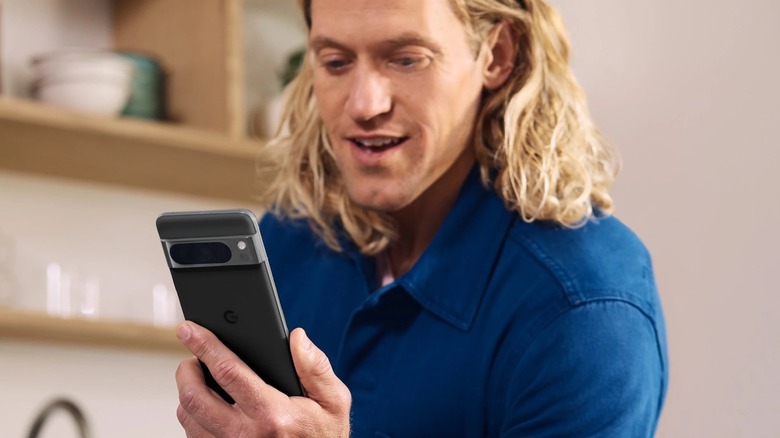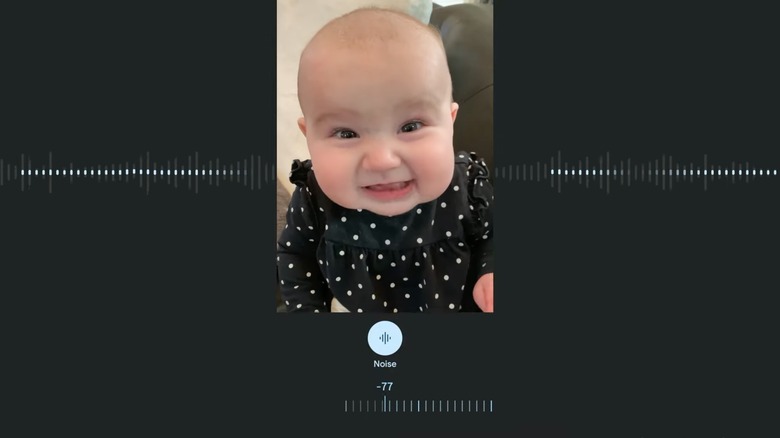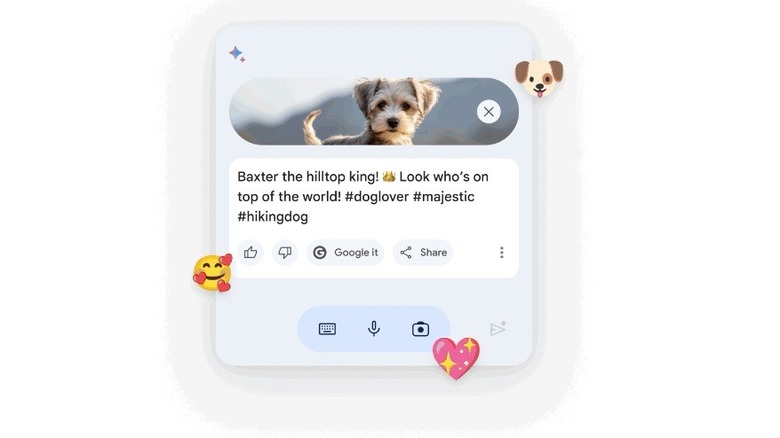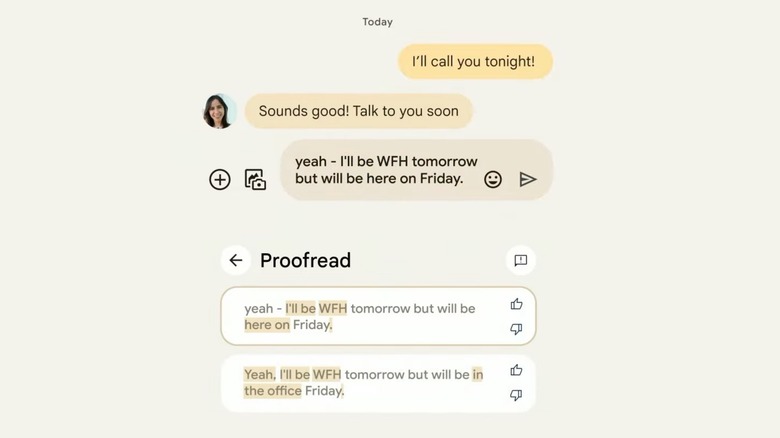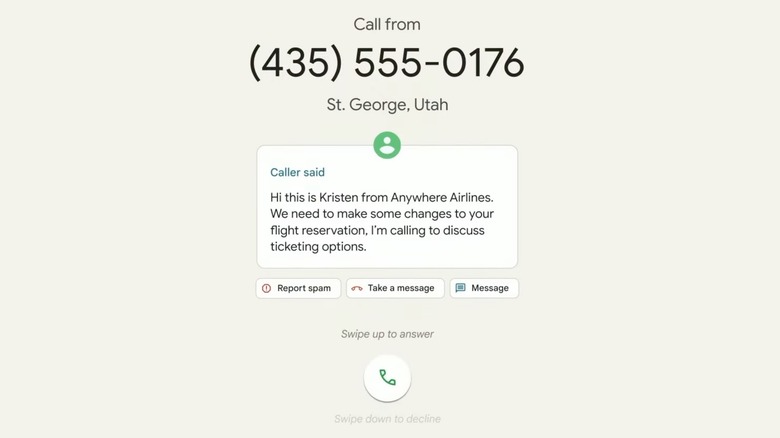5 Of The Best AI Features Built Into The New Google Pixel 8 Pro
Google has launched the Pixel 8 and Pixel 8 Pro, and this time, the company is leaning heavily into the power of AI to distinguish its latest flagships from the competition. The Pixel 8 Pro brings some significant upgrades, including a powerful new Tensor G3 chipset, upgraded front and rear cameras, a brighter display, a temperature sensor, and, most significantly -– seven years of features and updates -– a first for the brand. While the hardware improvements are noteworthy, the software makes the Pixel 8 Pro stand out.
If you have a Google Pixel, you can already access a host of AI-powered photography features, like Magic Eraser, Photo Unblur, Guided Frame, and Real Tone. Even Google Assistant provides a supercharged experience on Pixel phones, automatically handling calls from unknown numbers thanks to Call Screen or staying on hold and informing you when a customer representative is available with Hold for Me.
With the Pixel 8 Pro, Google is taking those AI advancements to a new level thanks to the power of the Tensor G3 chipset, bringing even more improvements to photos, phone calls, and Google Assistant, among others.
Magic Editor
The Pixel 8 Pro lets you make professional edits from your smartphone thanks to Magic Editor in Google Photos. The experimental feature was announced earlier this year and lets you edit specific parts of a photo. For example, you can reposition the subject to be front and center and make them bigger, too. Magic Editor can even fill in the gaps when the subject is repositioned. For example, if you move a child holding balloons from the edge to the center of the frame, Magic Editor will use generative AI to create more balloons and complete the image.
Magic Editor also lets you do other things, like remove pictures of people in the background or hide the shoulder strap of a bag you're carrying. Specific parts of an image, such as the sky, can also be edited to increase brightness or remove clouds.
Magic Editor isn't the only new photo-editing feature coming to the Pixel 8 Pro. Best Take in Google Photos can create the perfect group shot, helping you blend similar images so you can choose the best expression for every person in the group. Pixel 8 Pro users will also have access to Zoom Enhance, which uses generative AI to fill in the gaps in pixels when you zoom in and crop a photo.
Audio Magic Eraser
If you've ever recorded a video only to find that the audio has been interrupted by annoying background sounds, the Audio Magic Eraser on the Pixel 8 Pro could save the day. It works like Magic Eraser for photos, but instead of images, it removes different types of background noise. Audio Magic Eraser uses machine learning to identify the type of sounds in the background and then separates them into different layers you can control.
Audio Magic Eraser on a video clip will categorize the different layers like wind, speech, noise, crowd, and music. You can then tap a layer and reduce the volume of that particular sound. Google provided a few examples of how you can use Audio Magic Eraser. One video shows a woman using Audio Magic Eraser to reduce construction sounds in her makeup tutorial video. In another video, Google demonstrates how Audio Magic Eraser cuts out the sound of a dog barking in the background, letting you hear a baby's ga-ga sounds more clearly.
Assistant with Bard
With the Pixel 8 Pro, Assistant is getting a generative AI upgrade thanks to Google Bard integration. Google's conversational chatbot can now collaborate with apps like YouTube, Maps, and even your Google apps like Gmail and Docs. As a result, you can ask Assistant with Bard to find and summarize information from your personal apps.
For example, you can ask Assistant with Bard to recap the emails you've missed in the past week, which will then display a summary of important emails from the Gmail app. You can even ask follow-up questions for specific emails, like the location of a birthday party from an invite and how long it takes to get there. Assistant with Bard is also capable of helpful suggestions, such as creating a social media caption for a photo you've captured by analyzing the contents of an image. Assistant with Bard is initially rolling out to early testers, after which Pixel 8 users will get access as an opt-in experience.
Assistant is also getting some other upgrades, like the ability to summarize web pages into key points in Chrome. In addition, it will be able to read web pages aloud and translate them.
Gboard's Fix It proofreading
Google had previously rolled out a Gboard feature called Proofread for beta testers that uses generative AI to proofread what you type. This feature is coming to the Pixel 8 Pro in the Gboard keyboard app as Fix it, appearing as a button in the toolbar above the keyboard. Gboard uses Google's generative large-language models to improve the message, making changes to grammar and punctuation instead of just fixing your spelling. When you tap Fix it, you'll get a recommended option to improve the sentence. If you want more options, tap More Fixes to get variations of the same sentence.
In the next few months, the Pixel 8 Pro will also be able to provide better smart replies in Gboard with more conversational awareness. The Pixel 8 Pro is also getting some speech enhancements that will make voice typing on Gboard more advanced, with the ability to automatically detect when you switch to a different language.
Call Screen
Call Screening is already available for Pixel devices, letting Assistant answer calls from unknown numbers on your behalf. It displays a real-time transcription of what the caller is saying and lets you pick a suggested response. Google says Call Screen is already helping Pixel users get 50% fewer spam calls, and with the Pixel 8 Pro, the useful feature is getting more improvements.
For starters, Assistant now has a more natural-sounding voice and can converse with the caller, sometimes entirely without your help. A demonstration at the Made By Google event showed how Call Screen was able to identify a spam call and then automatically reply with, "Unfortunately, the person you're calling cannot take your call right now."
Assistant is also able to identify which calls from unknown numbers are important. In another demo, Assistant has a conversation with an airline representative about ticketing options. It then displays a transcript of what the caller says and allows you to answer the call or take a message. Google says that Call Screen will soon be able to suggest contextual replies for straightforward calls like appointment confirmations, so you don't even have to answer the phone.
